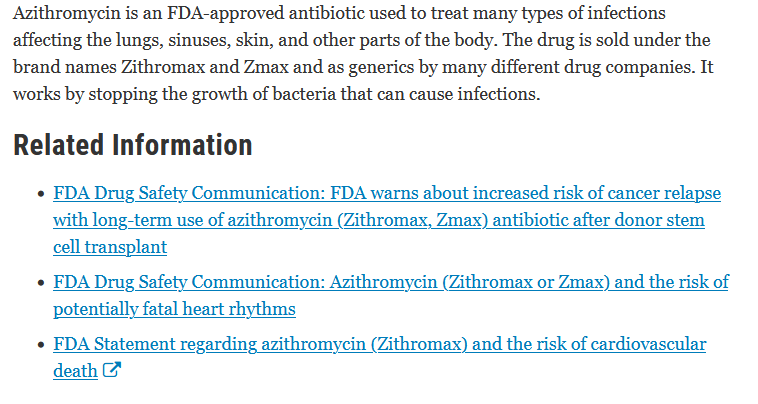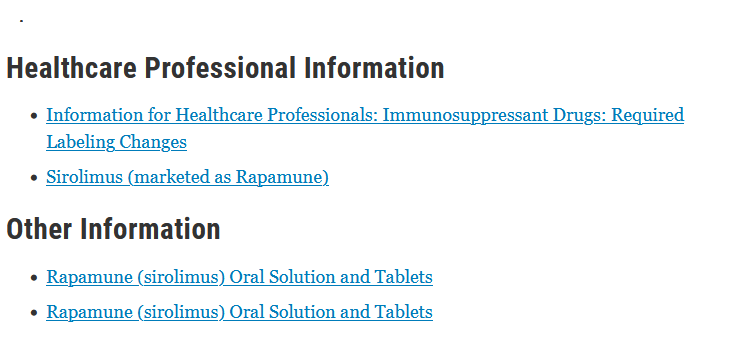Taking two antibiotics based on a patent and not published clinical research is not a no brainer. Any possible negative effect on the microbiome aside, Azithromycin is associated with an increased risk of sudden cardiovascular death.
During 5 days of therapy, patients taking azithromycin, as compared with those who took no antibiotics, had an increased risk of cardiovascular death (hazard ratio, 2.88; 95% confidence interval [CI], 1.79 to 4.63; P<0.001) and death from any cause (hazard ratio, 1.85; 95% CI, 1.25 to 2.75; P=0.002). Patients who took amoxicillin had no increase in the risk of death during this period. Relative to amoxicillin, azithromycin was associated with an increased risk of cardiovascular death (hazard ratio, 2.49; 95% CI, 1.38 to 4.50; P=0.002) and death from any cause (hazard ratio, 2.02; 95% CI, 1.24 to 3.30; P=0.005), with an estimated 47 additional cardiovascular deaths per 1 million courses; patients in the highest decile of risk for cardiovascular disease had an estimated 245 additional cardiovascular deaths per 1 million courses. The risk of cardiovascular death was significantly greater with azithromycin than with ciprofloxacin but did not differ significantly from that with levofloxacin.
https://www.nejm.org/doi/full/10.1056/nejmoa1003833
A stopped clinical trial with Azitromycin showed an increase risk of cancer relapse and death for people undergoing stem cell transplants:
Researchers in France identified this increased risk of cancer relapse and death while conducting a clinical trial investigating the effectiveness of long-term azithromycin to prevent bronchiolitis obliterans syndrome in patients who undergo donor, or allogenic, stem cell transplants for cancers of the blood and lymph nodes.
The researchers stopped the ALLOZITHRO1 trial approximately 13 months after the study completed enrollment of 480 patients because an unexpected increase in the rate of both cancer relapses and death was observed in patients taking azithromycin. Cancer relapse was observed in 77 patients (32.9%) with azithromycin treatment compared to 48 patients (20.8%) with placebo, which is an inactive treatment. A total of 95 patients died in the azithromycin treatment group versus 66 patients in the placebo group; thus, the 2-year survival rate was 56.6% in azithromycin-treated patients compared to 70.1% in those receiving a placebo. In the first few months of the trial, the death rate was about equal between those receiving azithromycin and placebo. However, an imbalance occurred subsequently and continued until the 2-year time point when the study was stopped.

